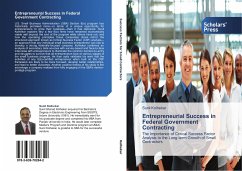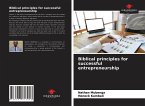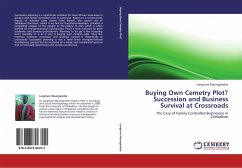U.S. Small Business Administration (SBA) Section 8(a) program has historically promised more in terms of a unique opportunity for entrepreneurs to grow their business than it has delivered. Sunil Kolhekar explains why a few 8(a) firms have remained economically viable well beyond the end of the program while others have not; and how the operating principles these companies share mirror the structured approach known as Critical Success Factor (CSF) analysis an approach that any individual small business entrepreneur can use to develop a strong federally-focused company. Kolhekar combines an analysis of secondary data sources with survey-based and face-to-face interviews with entrepreneurs to illuminate the common barriers-to-entry and struggles to survive that all entrepreneurs face at various stages of the small business program. He then aptly validates his work that the activities of any 8(a)-certified entrepreneur when built on the CSF framework are likely to be more focused, develop better relationships, and lead to better outcomes. Another positive finding of his study is the advantage a company realizes from fully engaging in the SBA s mentor-protégé program.








